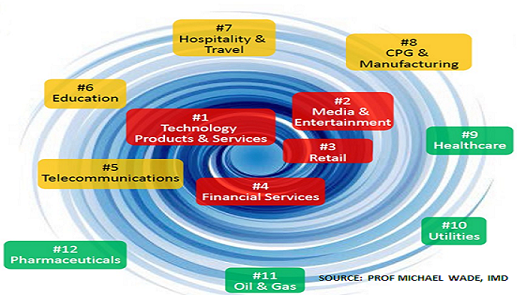IKEA Heads Into The Circular World With Furniture Subscription Trial

“Once upon a time, Granny and Grandad used to go to a large shop on the motorway to buy their furniture. They used to stagger around carrying Billy bookshelves and Dombas wardrobes, before treating themselves to Swedish meatballs in the canteen. And then Grandad would spend the rest of the weekend trying to assemble the furniture, whilst Granny turned up the volume on her radio to drown out his swearing.
“What, Granny, you actually bought furniture? But why did you buy when you could just rent it, and change it when you wanted something different?”
That future isn’t very far away. In fact, if you live in Switzerland, you’ll be able to rent furniture from IKEA stores this month on a trial basis. As the boss of Inter IKEA told the Financial Times last week:
“We will work together with partners so you can actually lease your furniture. When that leasing period is over, you hand it back and you might lease something else. And instead of throwing those away, we refurbish them a little and we could sell them, prolonging the lifecycle of the products. The trial is the first in a series of tests that IKEA hopes could lead to “scalable subscription services” for different types of furniture.”

Of course, IKEA aren’t the first company to be moving in the direction of subscribing rather than selling. Not many people buy CDs or videos these days, after all, but instead subscribe to streaming services that enable them to download what they want, when they want it.
But what is new, as the chart from Prof Michael Wade of IMD shows, is that it illustrates a growing move by consumer product groups and manufacturers to follow this lead. And behind the move is an early effort to put the principles of the circular economy into practice, as IKEA describe:
“You could say leasing is another way of financing a kitchen. When this circular model is up and running, we have a much bigger interest in not just selling a product but seeing what happens with it and that the consumer takes care of it. He added that Ikea now designed kitchens so that it was possible to change the cupboard doors without needing to rip out the whole set-up. “It’s interesting if you as a consumer say ‘I can change and adapt and modernise my kitchen if that’s a subscription model’”.”

It also marks a further departure from the concept of globalisation, which has dominated business for a generation. Globalisation was essential for the world of the BabyBoomers, where the world’s population went from 2.5bn in 1950 to 6.1bn by 2000. There just wasn’t enough “stuff” to go round in the rich Western countries, and so companies were forced to develop global supply chains to satisfy demand.
But today, as the chart describes, smart companies like IKEA are starting to plan for a world where services rather than products will be the main driver for revenue and profit growth. Rather than building in obsolescence, so that the consumer was forced to make repeat purchases, the new business model is based on providing a solution that can evolve with the consumer’s needs.
It will also, necessarily, operate on a local scale. It will make no sense, for example, for IKEA to be continually shipping kitchen doors across the world, because the customer doesn’t want a pink colour any more.
The same principle is being applied by the Circular Plastics Alliance in Europe, which is focused on 5 key areas to turn 10 million tonnes/year of recycled plastics into new products within the next 6 years – Collection and sorting; Product design for recycling; Recycled plastic content in products; Monitoring systems; R&D and investments, including chemical recycling.
The days of Granny and Grandad choosing to actually “own” their furniture may well be coming to an end. And for companies, the challenge of developing new business models is no longer something they can put off till the future. Those that recognise the opportunity created by the growing demand for products that are more sustainable, affordable and sustainable will be the Winners in this New Normal world.
Disclosure: I wrote this article myself, and it expresses my own opinions. I am not receiving compensation for it. I have no business relationship with any company whose stock is mentioned in this ...
more



My daughter says she thinks even Target has better quality than IKEA. That could be the problem with any business model it chooses. The company has a place, for people who have extreme space issues.